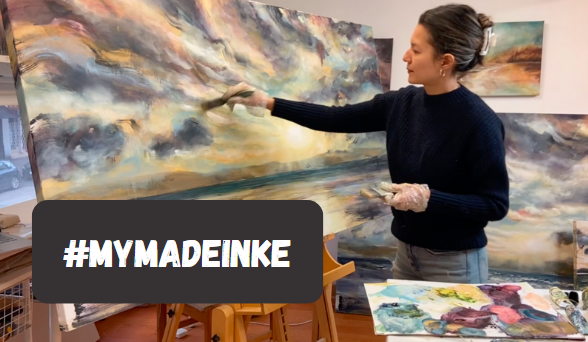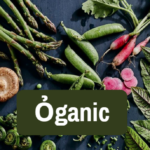The hashtag #MyMadeInKE has become a rallying cry for supporting and celebrating products made in Kenya. This movement highlights the rich and diverse talent found in the country, promoting local industries and craftsmanship.
In this comprehensive article, we will delve into the origins and significance of #MyMadeInKE, explore its impact on various sectors, and discuss how it is transforming perceptions of Kenyan products. Additionally, we will provide insights, analyses, and interpretations to help you understand why #MyMadeInKE is more than just a trend—it’s a movement.
Introduction to #MyMadeInKE
#MyMadeInKE is redefining what it means to support and celebrate the Made in Kenya label. It is a social media campaign and movement aimed at promoting Kenyan-made products across various sectors.
The hashtag has gained traction not only in Kenya but also internationally, as more people recognize the value and quality of Kenyan goods. This movement is about more than just patriotism; it’s about economic empowerment, cultural pride, and sustainability.
The Origins of #MyMadeInKE
The #MyMadeInKE movement began as a grassroots effort by local artisans, entrepreneurs, and consumers who wanted to showcase the best of Kenyan products.
It started gaining momentum on social media platforms, where users would post pictures and stories of their favorite Kenyan-made items, using the hashtag #MyMadeInKE.
The movement quickly grew, attracting attention from larger brands, government agencies, and international audiences.
Key Sectors Highlighted by #MyMadeInKE
Fashion and Textiles
Kenya’s fashion industry has seen a significant boost thanks to the #MyMadeInKE movement. Designers are creating unique pieces that blend traditional African patterns with contemporary styles. This fusion has captivated global audiences, putting Kenyan fashion on the map. Brands like KikoRomeo, which emphasizes sustainable and ethical fashion, are leading the charge.
Handicrafts and Art
Kenyan artisans are renowned for their intricate beadwork, carvings, and woven products. The #MyMadeInKE movement has brought these crafts to a wider audience, helping artisans gain recognition and better market access. Platforms like the Maasai Market provide a space for these artists to showcase their work.
Food and Beverage
Kenya’s agricultural sector is a cornerstone of its economy, and the #MyMadeInKE movement has shone a light on locally produced food and beverages. From coffee and tea to honey and spices, Kenyan products are gaining a reputation for quality and sustainability. Initiatives like the Kenya Coffee House and local farmers’ markets are instrumental in promoting these goods.
Technology and Innovation
Kenya is often referred to as the “Silicon Savannah” due to its vibrant tech scene. The #MyMadeInKE movement highlights the innovative spirit of Kenyan entrepreneurs who are creating tech solutions for local and global challenges. Companies like M-Pesa, a mobile money transfer service, exemplify the ingenuity found in Kenya.
Impact on Local Economy
The #MyMadeInKE movement has had a profound impact on the local economy. By encouraging consumers to buy Kenyan-made products, the movement supports local businesses, creates jobs, and keeps money within the country. This economic empowerment is crucial for sustainable development and reducing dependency on imports.
Case Studies of Successful #MyMadeInKE Brands
KikoRomeo
KikoRomeo is a fashion brand that has been at the forefront of the #MyMadeInKE movement. Known for its sustainable practices and use of local materials, KikoRomeo has gained international acclaim. The brand’s commitment to ethical fashion and support for local artisans sets it apart in the industry.
Kazuri Beads
Kazuri Beads started as a small workshop producing handmade beads and has grown into a globally recognized brand. The company employs over 300 women, providing them with fair wages and opportunities for growth. Kazuri Beads’ success story is a testament to the potential of #MyMadeInKE.
M-Pesa
M-Pesa revolutionized the way people in Kenya conduct financial transactions. This mobile money service, developed by Safaricom, has become a model for other countries. M-Pesa’s success showcases Kenya’s potential in tech innovation and the global impact of its products.
Challenges and Opportunities
While the #MyMadeInKE movement has seen significant success, it also faces challenges. Issues such as limited access to global markets, competition from imported goods, and inadequate infrastructure can hinder growth. However, these challenges also present opportunities for improvement. By addressing these issues, Kenya can strengthen its position as a hub for quality products.
How to Support #MyMadeInKE
Supporting the #MyMadeInKE movement is simple and impactful. Here are some ways you can get involved:
- Buy Kenyan Products: Choose locally made goods whenever possible.
- Spread the Word: Use the hashtag #MyMadeInKE on social media to share your favorite Kenyan products.
- Support Local Businesses: Visit local markets and shops that sell Kenyan-made items.
- Invest in Kenyan Brands: Consider investing in or partnering with Kenyan companies to help them grow.
Future Prospects of #MyMadeInKE
The future of #MyMadeInKE looks promising. As more people recognize the value of Kenyan products, the movement is likely to grow. Continued support from consumers, businesses, and the government will be crucial in sustaining this momentum. Innovations in technology and improvements in infrastructure will further enhance the reach and impact of #MyMadeInKE.
FAQs about #MyMadeInKE
Q: What is #MyMadeInKE? A: #MyMadeInKE is a movement and social media campaign aimed at promoting and celebrating products made in Kenya.
Q: How did #MyMadeInKE start? A: The movement began as a grassroots effort by local artisans, entrepreneurs, and consumers to showcase Kenyan-made products.
Q: What sectors are highlighted by #MyMadeInKE? A: Key sectors include fashion and textiles, handicrafts and art, food and beverage, and technology and innovation.
Q: How can I support #MyMadeInKE? A: You can support the movement by buying Kenyan products, spreading the word on social media, supporting local businesses, and investing in Kenyan brands.
Q: What impact has #MyMadeInKE had on the local economy? A: The movement has boosted the local economy by supporting businesses, creating jobs, and keeping money within the country.
Q: What are some successful #MyMadeInKE brands? A: Successful brands include KikoRomeo, Kazuri Beads, and M-Pesa.
Conclusion
#MyMadeInKE is more than just a hashtag; it’s a movement that is redefining what it means to support and celebrate the Made in Kenya label. By promoting local industries and craftsmanship, #MyMadeInKE is fostering economic empowerment, cultural pride, and sustainability.
As the movement continues to grow, its impact on the local economy and global perceptions of Kenyan products will only strengthen. Join the movement today and help support the incredible talent and innovation coming out of Kenya.



